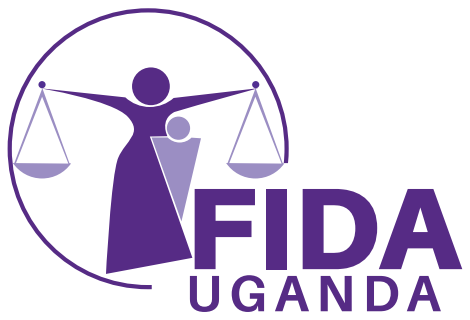The Uganda Association of Women Lawyers (FIDA-Uganda) is a membership-based feminist non-governmental organization (NGO) formed in 1974. It is a member of several networks at grassroot, national, regional and international levels. FIDA-Uganda’s program focus is access to justice for vulnerable women and children; enhancing gender responsive governance and women’s effective participation in public life and women’s socio- economic justice. They use a feminist, human rights-based approach, to conduct advocacy, legal education/rights awareness, Alternative Dispute Resolution (ADR), litigation, Strategic Interest Litigation (SIL) and provide a holistic response to the needs of women and children. FIDA Uganda exercises her mandate through her work guided by three objectives including; enabling women in Uganda access quality and affordable legal services as a means to achieve human rights, gender equality and sustainable development; promoting social accountability, rule of law and gender responsive governance at local national and regional levels; and promoting accountability for the enactment and implementation of legal and policy frameworks for women’s socio-economic justice.
FIDA-Uganda has undertaken work in supporting women’s demand for their rights to decent work especially women in casual employment like flower farms, plantations, domestic workers, markets and others. They have also been part of initiatives for enhancing protection of rights of women, children and other vulnerable groups in business transaction through facilitation of consultations with communities and legal policy development- The latest being the National Action Plan on Business and Human Rights(NAPBHR).
Recognizing that land plays a critical role in enhancing women’ participation in economic activities, housing and in many investment initiatives, they have worked with different communities in protection of their interests in land under the different tenures. This has involved the lobbying of different Ministries and supporting the registration of their interest and rights in land. Further recognizing the unique needs of indigenous groups, FIDA has worked with some indigenous groups in Kabale and Kapchorwa with an intention of advancing the protection of their rights to land, protection and access to social services.
They have also undertaken regional and international advocacy especially targeting rights of women, children and other vulnerable groups in business and human rights engagements including the United Nations Binding Treaty on Business and Human rights. FIDA-Uganda has also supported Transitional Justice processes in Acholi and Karamoja, working with formal and informal justice institutions to address the legacy of conflict, with a specific focus on the needs of women and girls. In addition, FIDA-Uganda supports refugee communities, providing legal assistance and undertaking conflict mitigation between host and refugee communities.
They are currently running an economic justice project that focuses on addressing the causes of women’s economic vulnerability by strengthening women’s organising to influence the legal and policy environment on business and human rights, enhancing access to redress and eliminating all forms of discrimination and abuse against women working in agribusiness and trade. Through the project they have addressed issues like violations by business cooperation’s, sexual harassment in the place of work, inclusion of women in budgeting and other fiscal policies. Their Women@Work Campaign emphasizes the empowerment of women workers to understand their rights and demand accountability for infractions in the horticulture sector. It also aims to strengthen the capacity of the trade unions to organize and influence changes in policy and practice. The project has a strong advocacy component and recognised the central role of dialogue, consensus and movement building as a key element of successful lobbying and advocacy.


